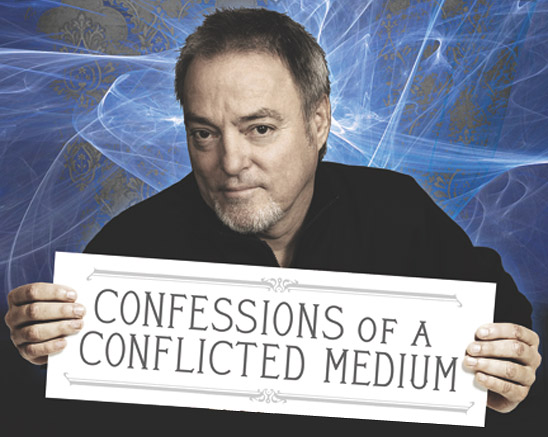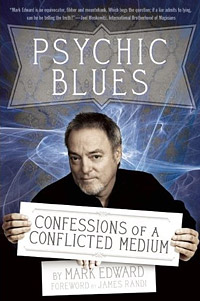In this week’s eSkeptic:
rbutr tells you when a webpage you are viewing has been disputed, rebutted or contradicted elsewhere on the internet.
rbutr is a browser plugin which tells you whenever the page you are looking at has been disputed elsewhere on the net. More importantly than just providing people with opposing perspectives, it incorporates critical analysis and critical thinking in to our everyday experience of the web. So with rbutr, the internet will give people a much more comprehensive view of complex issues, and will teach them how to critically consume the information they encounter.
How does it work?
rbutr is a community-driven app which connects webpages together on the basis that one page argues against the other.
- Visit a rebutted page and you will be told “There are rebuttals to this page.” You can then open up the rebutting article(s).
- Found a great rebuttal? Connect it to the page(s) it rebuts so that people reading those articles can know about it.
- Want a rebuttal for a page you have found? Submit a request to the community.
New Enhancements
- The ability to intuitively add multiple ‘Source’ pages and ‘Rebuttal’ pages in any one rebuttal submission.
- Twitter Reply Widget added to the website — Tweet rebuttals directly to people promoting rebutted pages. See example.
- Complete redesign of plugin and website interface
- Browse Page showing trending rebuttals submitted to rbutr,
filterable by subject matter - Numerous bug fixes and improvements to user experience
How Do I Get Started?
For more information and to get started using rbutr, please visit http://rbutr.com.

About this week’s eSkeptic
In this week’s eSkeptic, John Rael reviews Mark Edward’s book Psychic Blues: Confessions of a Conflicted Medium—a book “written by a long-time and current practicing psychic who freely admits to the reader that there is no such thing.”
John Rael is the producer and lead kicker of the webseries SkepticallyPwnd.com. The rest of his skeptical time is spent investigating paranormal claims with the IIG (Independent Investigations Group), and filming for the JREF (James Randi Educational Foundation). John has two BAs in Philosophy and Theatre Arts from the University of Northern Colorado.
Inside the Psychic Mind
a book review by John Rael
This is not a book for the faint of heart. That is, this is not for the skeptic who has been living in an echo chamber. Your first clue should be the fact that Psychic Blues has a forward written by James Randi, but includes Uri Geller in the Acknowledgments. There is also no intention to deconstruct the method of hucksters. If you’re looking for a critical exposé on the inner workings of charlatans, let me remind you that you still haven’t read your signed copy of Flim Flam. You will also not find a great amount of animosity towards these peddlers of bullshit. Psychic Blues not only empathizes with psychics, but at times even admires them and their artistry. Whatever you think of these vultures, let it never be said that they aren’t creative.
I actually think the greatest virtue of this book is its ability to empathize with psychics while rejecting the very premise on which they base their lives. I’ve never seen psychics handled so gingerly by a skeptic. This was especially surprising coming from Mark Edward, but it wasn’t the biggest surprise I received. If you are a skeptical friend/acquaintance of Mark’s, you are no doubt familiar with his abrasive, often knee-jerk opinions about psychics. What you may not know, and what may shock the hell out of you, is that Mark is still a practicing psychic. That is, he still puts on the show of being a psychic. For a lot of straight edge skeptics this might sound like a deal breaker. It need not necessarily be.
Psychic Blues should not be dismissed even by those who will reject Edward’s shallow justifications for continuing to ply his psychic trade. There is no other book I know of that is written by a long-time and current practicing psychic who freely admits to the reader that there is no such thing. There are a couple of books written by reformed psychics, but even Psychic Mafia was only critical of the “fake” psychics while leaving plenty of room for the “genuine” ones. We have dozens of books written from an external skeptical perspective about psychics. And there are hundreds more that come from the true believing clients and practitioners themselves. This represents a unique opportunity that you have very little chance of receiving from the blogs you’ve decided are the most acceptable.
An Extremely Conflicted Medium
When I cracked open this book I was expecting to see the dualism between the Mark of the Past and the Mark of the Present. I assumed Past-Mark would be performing and defending his woo while Present-Mark would merely analyze the circumstances of such deception and self-deception. My assumption was correct as often as it was wrong. Mark is truly a “conflicted” medium…and person. At times it felt like two different people were writing. Sometimes Past-Mark would defend the woo:
“My belief is nothing more than if I told you I believe in gravity. It is what it is and that’s all.” (104)
“How do you know I’m not really psychic in my spare time? Being a magician and having psychic abilities are not exactly mutually exclusive, you know.” (76)
Sometimes Past-Mark would rail against the woo:
“I have successfully infiltrated the biggest moneymaking scam since the Three-Card Monte.” (77)
Sometimes Present-Mark rejects the woo:
“People want to believe it’s all real. None of it is, as far as I know.” (79)
“My ego had taken on spiked horns and hooves by that point. This was all so wrong.”(65)
Sometimes Present-Mark justifies the woo:
“People will believe whatever they want to believe.” (218)
“To flatly refuse such requests or to admit to not having any other-worldly connections in this admittedly far-fetched branch of my craft would be to decrease my marketability.” (79)
In other words, he seems to be saying, this is all bunk but it pays the bills. To add to the schizophrenia is the classic Hollywood self-deprecating ego-mania. (An extreme example of this would be Michael Moore, who is more than happy to joke about how ridiculous his success is: “The fact that I get to make movies is inappropriate.” However, the moment you question his definition of things like “facts” and “documentary” he will turn on you with a braggadocio claim like: “I’m the biggest selling author in America […] how many more people do I need to convince?!”) There are moments that are apologetic and dark, though often followed by defensive self-aggrandizing. I’m sure most readers would agree that the dark passages are where the book soars. However, I’m willing to admit that this is the dramatic nectar that most of us are predisposed to feed on. No matter who it comes from or what the context is, pain makes for great art. On top of that, this is especially what skeptical readers want from any tale of woo as hurtful as the psychic industry: You must atone for your poppycock!
Edward does offer some apologetic moments, but only he is allowed to give you this. There were several instances when he is called out on his psychic act. In those moments, however, Mark slyly defends his brand of entertainment. This is understandable in a time and place when his very livelihood might have been on the line, but even now (years later) he doesn’t give any credit to the skeptics of his past.
“Your skepticism is tanking the premise of the show,” Mark tells some DJ named Ed in the late 90s who is less than pleased to share a time slot with psychics (104). Throughout their working relationship, Ed tells Mark that doing psychic readings is “unethical,” takes great pleasure in reading the station’s disclaimer, and becomes even more skeptical after Mark recruits a few ringers to call in. At the time, Mark just wanted to be able to do the job he had agreed to do, so some defensiveness is expected. However, even today Mark gives no credit to a man who called a Spade a Spade: “Unfortunately, like most shortsighted people, these brief moments of unexplainable mystery only served to increase Ed’s sense of alienation and aggravation toward the psychics,” and ironically, “he was clearly one of those people who is never happy unless he’s the center of attention” (107, 102).
The Ends Justify the Medium
There is one ideology that Mark tends to lean on, which I would like to take a moment to righteously squash: Consequentialism. Call me a child of G. E. Moore (or Pirsig if you want to hurt my philosophy street cred) but consequentialism is bullshit. It astounds me how much woo the-ends-justify-the-means thinking feeds.
“I know it’s just a placebo, but it makes me feel better.”
“Tell that to the people who have turned their lives around because of that book.”
“Those guys have helped to discredit the myth of orbs.”
“Well if he had asked for her consent we might not have Christmas.”
This philosophy gets uglier when it is used to not only judge the value of actions or means, but to appraise the agent carrying out said actions. That is to say, the ends justify the means and validate the person who used those means. Hypothetically, I break into a house. Before I get to the Blu-ray collection, however, I find the homeowner unconscious on the ground with blood coming out of his head. I call the paramedics who come to rescue the homeowner. Can I be called a “good” person? I mean, if I hadn’t been trying to rob him blind, he would be dead right now. I saved him…like a super hero!
I sincerely hope anyone reading this would never entertain the idea that the results of this situation somehow make my actions okay, let alone make me a swell guy. Well, this is very similar to what Edward proposes. I don’t want to spoil any of the dramatic details (it was actually my favorite chapter of the book). Suffice to say that he gives a reading to a client through the Psychic Friends Network, which shows Mark that “there was indeed something genuine amid the fakery and the hucksterism. I had saved someone’s life” (43).
I’m willing to believe that everything Mark has written, and everything his superiors at the “network” told him about this client are completely and utterly true. I’ll buy that this woman might only be alive because she called a psychic network. I’ll even grant that maybe a different psychic would have exacerbated the situation, and it was only the gentle touch of Mark Edward that kept her from the cold touch of death. Does this mean that Edward saved her life? Hell no! If Mark had done a psychic reading that averted World War III it still wouldn’t make him a hero. That’s not how morality works; that’s how cognitive dissonance works.
“Though I was playing a small part in a huge commercial system that sold compassion and exploited human misery, as I looked around at the colors of the autumn leaves and breathed in the fresh morning air, the warmth of a new illumination dawned on me. I had an awesome responsibility.” (43)
Before I’m able to judge Edward too harshly, though, I realize that maybe I’m being misdirected by a magician. Once again, this is a passage that demonstrates the conflict and outright desire to possess a pastry and consume it at the same time. Mark is both trying to express the irony and sheer happenstance of his “pedantic and silly” reading that resulted in a person continuing to live, and take credit at the same time (43). I saw you force that card, Mark! (He pulls a similar sleight of hand with his definition and use of the word “psychic” throughout the book.)
The greatest tragedy of this book is that Edward seems to miss out on his own lesson, and it’s a really good one: We should all do psychic readings just in case beautiful moments and great consequences result…. Just kidding. The lesson is that we should listen to each other and talk to each other much more than we do. This is the point that Psychic Blues demonstrates so wonderfully over and over again. We need to connect more often and with more honesty. “That’s the real magic; there is a serenity and wisdom to quiet listening,” he writes (220).
Edward sees this but somehow wants to believe that the listening he did and does as a psychic is the same thing. It is not. It reminds me of some of my friends who are Life Coaches (i.e. out of work actors). I mean, they’re just being good listeners, giving the best advice they can, and helping to fulfill a very real need of their clients. What’s the problem? The problem is that they are not actually friends or family members of their clients. The clients are giving them money, and putting them in a relative position of authority, but they are not a doctor, psychologist, licensed therapist or even an on-call EMT at a Skrillex concert. They are screwing with people’s lives without the least amount of expertise. That’s not just unethical, it’s downright dangerous.
Honestly?
There is no such thing as an “honest psychic.” Taking someone’s money based on a lie is not acceptable. Even if it’s a lie you never told. Mark never makes the paranormal claim himself. He merely allows his sitter to believe that he is psychic. To him it’s a form of entertainment, and since you don’t run out halfway through Hamlet to explain “this guy’s not really the prince of Denmark,” why would you tell a sitter that you got her name off her tacky gold necklace? Another analogy that Mark likes to use, courtesy of his friend Docc Hilford, is that “doing a disclaimer is kind of like walking into a really fancy French restaurant, and right before they serve your food the chef comes out and says it ‘came out of a can’.” No. Talking about canned food isn’t the problem; conning your customers into paying good money for canned food is the problem.
I understand that Mark Edward is an entertainer first and a skeptic second. I can even relate to that fact. If it ever came down to it and I had to pick between doing art and upholding my skeptical principles, I would pick my art in a second. However, I would have no illusions about or excuses for that choice. I know Mark would like to believe that he has “infiltrated” the psychic industry in much the same way that I want to believe I “infiltrate” the world of chiropractic every time I’m hired to play a patient for an unnamed school’s video series (true story). However, the truth is that we both need the money and, more importantly, these jobs offer us at least a minor opportunity to put our most prized talents to work.
Are we ignoring some of our principles to do it? Probably, but sometimes an artist is willing to give up a little bit of decency for the chance to pay a few bills with art. And now, after I’ve lost a chunk of my soul in exchange for a bachelor-degree-justifying paycheck, I can return to my skeptic pals with some brand new insights about the inner workings of the chiropractic industry. This is a bonus. This is not a free pass of self-justification that will allow me to rename myself as the Double Agent of Chiropractic. Edward: “I pretended I was Patrick McGoohan in an episode of Secret Agent. I was undercover. There are many similarities between what a good magician or mentalist does and what a spy is tasked to do; it’s all down to staging, misdirection, and sight lines” (65). Secret Agent Man.
Conclusion
Psychic Blues is an important work that should not be overlooked. It presents a unique insight that you will not find anywhere else, and could not be delivered by anyone but Mark Edward. As James Randi says, “he has the background experience to write such a book from a totally different point of view from anyone else I know.” Yes, this book may also piss you off, and even have you face-palming at times. But do you want to learn about psychics? The people, not the tricks? Do you want to understand who psychics are and not just how they operate? Here is your book. ![]()















